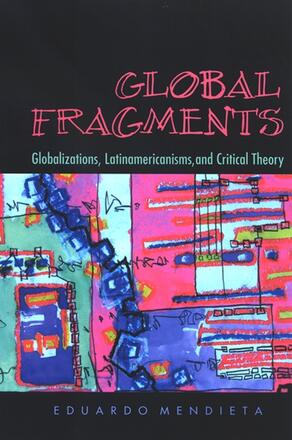
Global Fragments
Globalizations, Latinamericanisms, and Critical Theory
Alternative formats available from:
Philosophical explorations of the processes of globalization, particularly in the context of Latin America.
Description
Global Fragments offers an innovative analysis of globalization that aims to circumvent the sterile dichotomies that either praise or demonize globalization. Eduardo Mendieta applies an interdisciplinary approach to one of the most fundamental experiences of globalization: the mega-urbanization of humanity. The claim that globalization unsettles our epistemic maps of the world is tested against a study of Latin America. Mendieta also recontextualizes the work of three major theorists of globalization—Enrique Dussel, Cornel West, and Jürgen Habermas—to show how their thinking reflects engagement with central problems of globalization and, conversely, how globalization itself is exemplified through the reception of their work. Beyond the epistemic hubris of social theories that seek to accept or reject a globalized world, Mendieta calls for a dialogic cosmopolitanism that departs from the mutuality of teaching and learning in a world that is global but not totalized.
Eduardo Mendieta is Associate Professor of Philosophy at Stony Brook University, State University of New York. He is the author of The Adventures of Transcendental Philosophy: Karl-Otto Apel's Semiotics and Discourse Ethics and the editor of Take Care of Freedom and Truth Will Take Care of Itself: Interviews with Richard Rorty.
Reviews
"Global Fragments is an incredibly rich text that covers an enormous and impressive amount of ground—from theories of globalization to a study of Latin American thought to, in its final section, a series of engagements with particular 'global' thinkers. " — CITY: Analysis of Urban Trends, Culture, Theory, Policy, Action
"Mendieta brilliantly and imaginatively weaves together critical social theories from global theory, Latin American philosophy, Frankfurt School critical theory, and African American philosophy to put forth a synthetic vision of global ethics from the perspective of the oppressed. " — Cynthia Willett, author of The Soul of Justice: Social Bonds and Racial Hubris
"The author creatively addresses globalization in an interdisciplinary way that links pertinent questions—often discussed in isolation—emerging from the fields of history, philosophy, and literature. " — Manfred B. Steger, author of Globalism: Market Ideology Meets Terrorism, Second Edition